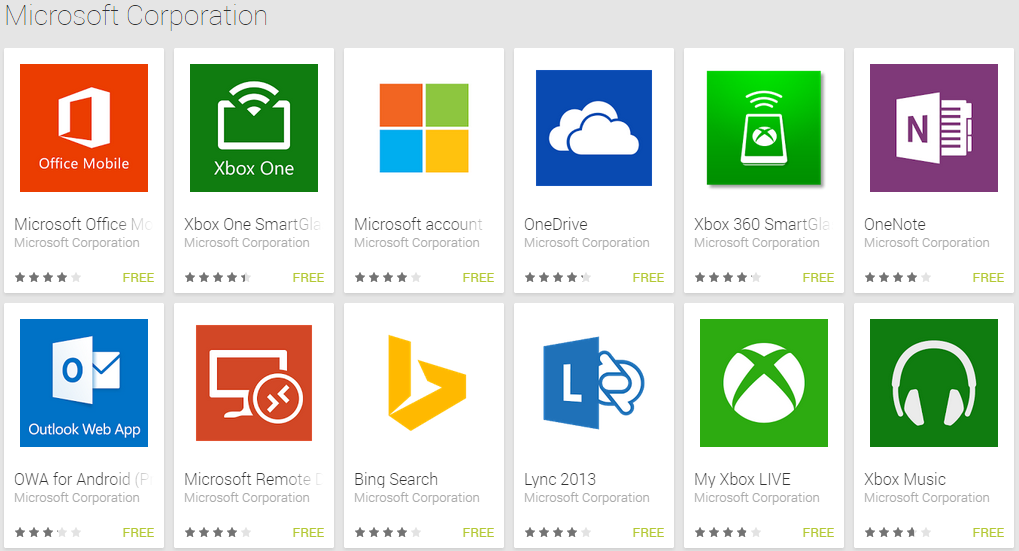It's no secret that Google's monopoly on Android has long haunted large companies around the world. In this article, we get acquainted with the opinion about the possible 'takeover' of the operating system by Google Microsoft. Will Android be able to fight the 'colonizer'?

Google recently took an odd step back down the road and added pop-ups to app design, even though it has frowned on the use of pop-ups in the past. So why is Google back to them again? The answer is simple – to remind who is the boss in Android and in the ecosystem as a whole. Such a move may indicate Google's concerns about attempts Microsoft to 'colonize' Android with cross-platform solutions that run counter to the proprietary ecosystem of services and applications.
Problem with Android
At a certain stage in its evolution Android, it had the advantage of open source and free distribution model. This allowed manufacturers to quickly install and modify the OS to suit their needs. Then they tied their devices to Google services, which allowed the company to monetize search, get the information they wanted, and have a share of Google Play app sales.
But with the 'maturation' and, as a result, the commercialization of the smartphone market based on Android, the profit of the device manufacturers decreased. At the same time, Google has integrated so many of its services into Android that the company has been criticized for turning the OS into a closed platform. The trend that appeared soon to pre-install 'fuflosoft' on devices in order to make a profit from each device only made the situation worse.
The companies started to create 'forks' Android, completely removing Google services from the ecosystem. Amazon did this by creating Fire OS using its own app catalog and 'cloud' services instead of Google counterparts. Chinese manufacturers acted in a similar way, because most of Google services are blocked in the country. In the fourth quarter of 2014, ABI Research estimates that forked devices accounted for 29% of total sales of all smartphones based on Android in the fourth quarter of 2014.
Time of destabilization
Controlling 3% of the global smartphone market through Windows Phone Microsoft has found a way to profit from this chaos by launching Android versions of their office applications to compete with Google products (OneDrive instead of Google Drive, Word instead of Docs, Outlook instead of Gmail, etc.). It got to the point that Microsoft released versions of their voice assistant Cortana for iOS and Android in order to 'steal' users and their information from Google Now.

Because Many users Android used Google apps because they were preinstalled on their devices, Microsoft approached OEMs to pre-install Office, OneDrive and Skype on their devices. At the time of this writing, about 30 manufacturers (Samsung, LG, Sony, Dell and others) have agreed to pre-install products Microsoft on their smartphones and tablets. This is a direct threat to Google in terms of cloud application automation. For example, both OneDrive and Google Drive prompt the user to automatically upload photos to the cloud. The user does not need two 'clouds', so he will choose one of them. If the choice is made in favor of OneDrive, then Google will lose access to user data from its service used for targeted advertising.
How Microsoft could 'hack' Android
The beauty of the plan Microsoft is that the company loses nothing by trying to attack Android with its applications. It is essentially just a step to include your applications on some of the popular devices in the market.
As for Windows Phone, the upcoming update to Windows 10 may push developers to port their apps for two reasons. First, Microsoft promised to ease the porting process from iOS and Android. Second, the apps Windows 10 will be compatible with phones, tablets, PCs, and Xbox One consoles, giving developers access to a vast chunk of the market outside of mobile. To top it all off, Microsoft is rumored to be developing its own emulator platform Android – applications on devices with Windows 10. All this means that Microsoft will soon be able to bridge the gap between the number of apps for Windows Phone (385,000) and Google Play (1.5 million).
Google's step mentioned at the beginning of the article to enable pop-ups in the OS looks like a weak response to aggression Microsoft. But that's all they can answer now. The Windows Phone app attack will be greeted with anticompetitive accusations, and an attempt to impose on manufacturers who to partner with is likely to be met with hostility.
Keep in mind that while Android are present on 80% of the world's devices, these devices only generate revenue for Google if they use search, the app ecosystem, and make purchases through Google Play. If Google is cut off from this ecosystem by competitors such as Microsoft, then Android will become just a free 'launcher' for other companies' apps.
Original article by Leo San.
Elir: A peculiar position, but such an opinion has a right to exist. In my opinion, Google will not miss its own in any case. On first reading, there was a doubt that the author somehow refers to Microsoft, but apparently this is not the case. Adjusting for the time, we see that there are no significant changes in the situation yet. However, based on personal user experience, the 'hijacking' threat Android is not perceived as serious. Question to readers: how often do you use applications Microsoft on your Android devices and are you ready to abandon the Google ecosystem?
